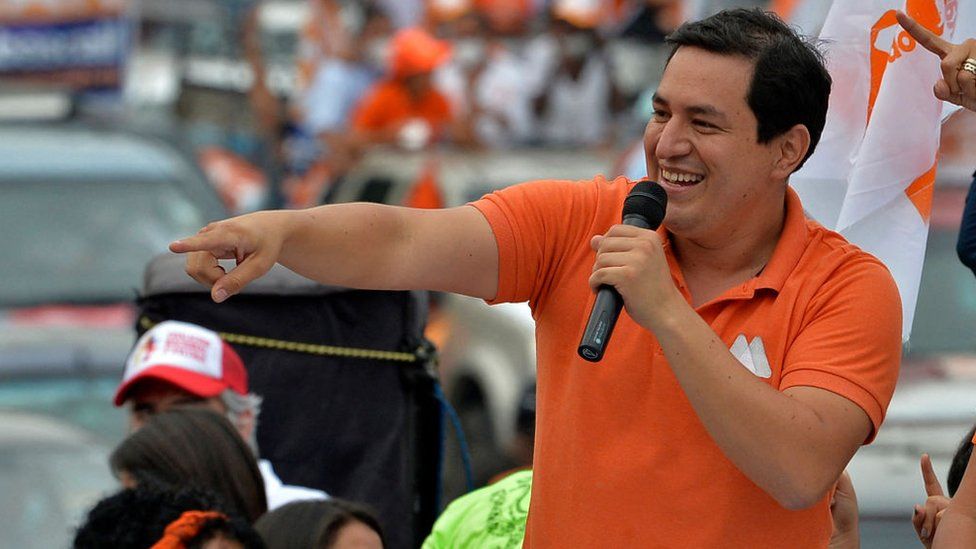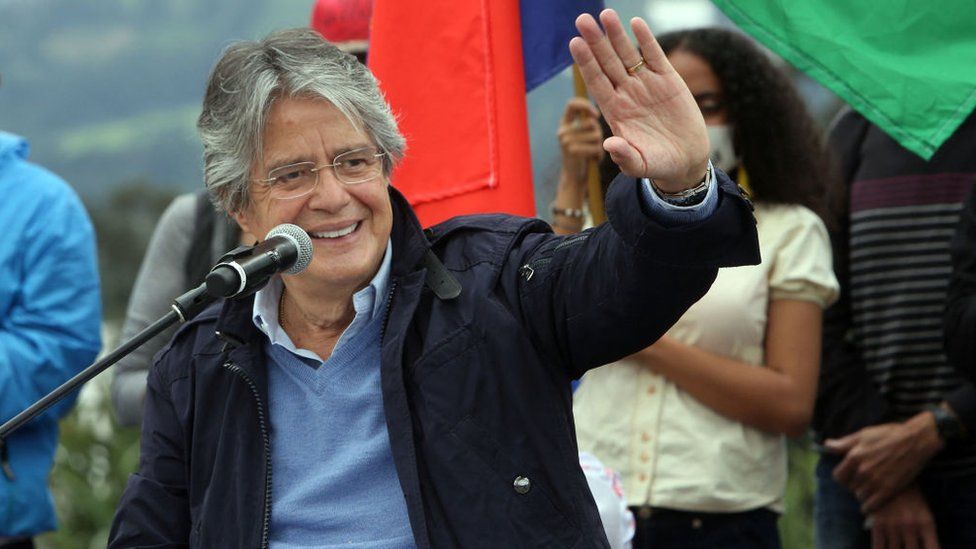Ecuador voters will choose on 11 April whether a left-wing technocrat and economist or a conservative banker-turned-politician is the most suitable president to lead them out of the crisis.
Sunday’s presidential run-off election is set to take place against the backdrop of one of the worst economic downturns in the Andean nation’s history caused by a still-raging pandemic that has so far claimed more than 17,000 lives. Eight of the country’s 24 provinces, including the capital Quito and the largest city, Guayaquil, have been under a health emergency.

In the shadow of this, Ecuador’s citizens will decide whether they want the socialist policies of former minister Andrés Arauz, 36, who is a political protégé of former left-wing President Rafael Correa, or the pro-market strategies of 65-year-old former banker Guillermo Lasso, a three-time presidential candidate.
While some pollsters have predicted that Mr Arauz could win the deciding run-off with the same big margin – over 10% – with which he finished ahead in the 7 February first-round vote, others forecast a closer result.
There was still considerable uncertainty about where the votes gained in February by the third-placed contender, indigenous leader Yaku Pérez, would end up going in the April run-off. Mr Pérez, who denounced “fraud” in the first round and demanded a recount, has refused to back either Mr Arauz or Mr Lasso and has called on his followers to cast blank votes on Sunday.
A left vs right battle
If he is elected, Mr Arauz would become the country’s youngest ever president at 36.
He held several high-ranking posts, including heading Ecuador’s central bank and leading the ministry of culture, during the 2007-2017 presidency of Rafael Correa, himself a prominent figure of the Latin American left.

Mr Arauz’s close links to the former president, who currently lives in Belgium and faces an eight-year prison sentence for corruption charges in Ecuador, has opened him up to allegations that he will rule as “Correa’s man”.
While he did not shy away from using former President Correa’s image to rally support on the campaign trail, Mr Arauz has insisted he will make his “own decisions” if elected president.
In contrast, former businessman and banker Guillermo Lasso represents the country’s business sector and has vowed to break away from the leftist policies of past administrations that he says have dragged Ecuador down.
However, despite his criticisms of Rafael Correa and the current centrist administration of Lenín Moreno, Mr Lasso has been accused by critics of offering a continuation of the unpopular Moreno government, which has been badly battered by the intertwined health and economic crises.

Vaccination a priority goal
Whoever wins on 11 April will face an uphill task.
According to Ecuador’s central bank, the economy shrunk by 7.8% in 2020 and data from the National Statistics and Census Institute (INEC) showed that some half a million people remained unemployed as of January 2021.
In addition to the economic turmoil, corruption accusations inside the health ministry led to an almost two-month delay in designing a national vaccination plan.
Not surprisingly, both candidates have focused some of their immediate promises on how to tackle the health emergency.
Mr Arauz has said his goal would be to vaccinate 2.5 million people a month through a free, nationwide vaccination plan which would require the hiring of close to 6,000 health workers.
He has also promised some $3bn (£2.2bn) in “productive loans” which he says would be mainly for entrepreneurs, young people, indigenous communities, women victims of violence and farmers.
For his part, Mr Lasso has vowed to vaccinate 9 million Ecuadoreans in the first 100 days of his administration, and promised he would lead “better” direct negotiations with the pharmaceutical companies producing Covid-19 vaccines.
On the economy, he has proposed an increase in the minimum monthly wage, to $500, as well as tax cuts for small businesses and the creation of a fund to stimulate entrepreneurship.
Some agreement on security
On one topic at least, both Mr Lasso and Mr Arauz seem to agree: on the need to improve public safety amid rising homicides, and to counter the threat posed by drug-trafficking armed groups operating along the border with neighbouring Colombia and Peru.
Both candidates have pledged to strengthen the military and police forces, with Mr Arauz placing his focus on respect of human rights, while Mr Lasso has called for “more and better training”.
They have also proposed more international co-operation to tackle the drug-trafficking groups.